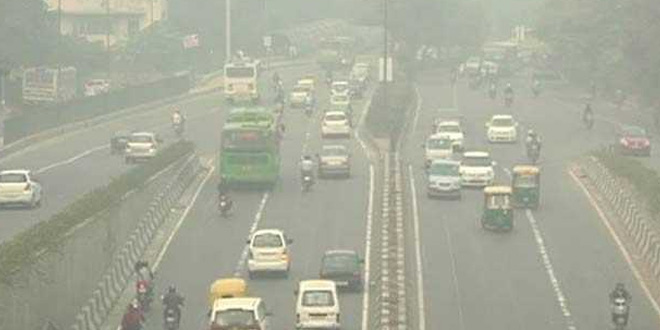Highlights
- Delhi recorded 448 on the air quality index second time this year
- Pollutant concentrations 3-5 times higher than prescribed standards: TERI
- Situation in Delhi-NCR result of crop biomass burning: Greenpeace India
New Delhi: Green bodies on Tuesday called for a “systematic and coordinated” action plan to check air pollution which soared to “severe” levels in the national capital, raising health concerns. A combination of smoke from stubble burning in Punjab and Haryana and moisture turned Delhi into a “gas chamber” on Tuesday, prompting authorities to announce a series of preventive measures including a four-fold hike in parking fees and slashing of metro fares. Delhi recorded 448 on the air quality index the second time this year.
The Energy and Resources Institute (TERI) suggested closure of schools and introduction of the odd-even car rationing scheme. It said air pollution levels were increasing over the last 35 days and at present pollutant concentrations are three to five times higher than the prescribed standards. Huge quantities of pollutant emissions are being released in the Delhi-NCR and upwind regions from various sources, TERI said.
Low wind speeds and inversion conditions are leading to severe pollutant concentrations, which have extremely adverse health outcomes, such as increased respiratory disorders and cardio-vascular problems.
We suggest stringent enforcement of the plan with emphasis on restricted entry of trucks other than those complying with BS-IV regulations… extensive cleaning of roads using mechanised and manual mechanism, it said and added that schools be shut.
It said the government should bring back the odd-even scheme and that two-wheelers, taxis and women should not be exempt from it.
Among other measures, it said government and private employees should be allowed to work from home and strict enforcement of the ban on DG sets should be ensured.
Alarming levels of pollution in Delhi calls for an action on a war-footing, Akshima Tejas Ghate, Associate Director (Transport and Urban Governance) TERI said.
Greenpeace India said a systematic, time-bound and comprehensive action plan addressing all sources of pollution is the need of the hour. It said the situation in Delhi-NCR is a result of the episodic event of crop biomass burning.
Delhi remains the epicenter of the pollution debate. However, Punjab, Haryana and most parts of northern India breathe even worse quality of air, said Sunil Dahiya, campaigner, Greenpeace India.
Also Read: Air Pollution: Absence Of Wind Plunges Delhi’s Air Quality






























